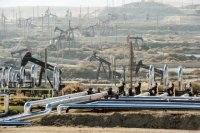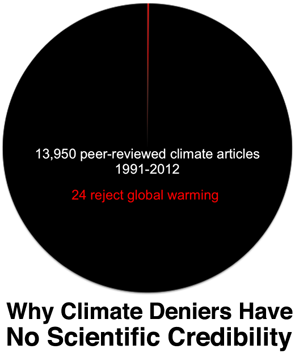ExxonMobil, the nation's largest oil and gas company, will begin disclosing risks associated with shale drilling and fracking to investors, in response to a long-running campaign by a coalition of shareholders.
In February, the groups of investors in a handful of major oil and gas companies including Exxon, Chevron and EOG Resources, demanded for the fifth year in a row more information from companies about the risks associated with fracking. The motion won the support of over 30 percent of Exxon shareholders — an unusually strong showing for a shareholder resolution.
On Thursday, the investors’ coalition announced that Exxon was the first company to agree to disclose risks. The company will publish a report by September that will describe fracking’s potential harm to air quality, water and roads, as well as risks associated with the chemicals used. Exxon agreed to follow criteria identified in a 2013 report, cited by the coalition and called Disclosing the Facts: Transparency and Risk in Hydraulic Fracturing Operations, in which Exxon received a failing grade for its transparency.
“We have seen the significant risks that come from hydraulic fracturing activities,” said New York City Comptroller Scott M. Stringer, custodian and investment advisor for the New York City Pension Funds’ $144 billion in assets, including $1.02 billion in ExxonMobil stock. “Corporate transparency in this arena is truly necessary for assessing risk and ensuring that all stakeholders have the information they need to make informed decisions.”
However, Exxon’s first report will not disclose data on methane leaks – information that shareholders argued strongly should be made public. Natural gas is primarily made of methane, a potent greenhouse gas that has climate changing effects over 80 times more powerful than carbon dioxide during the first two decades after it escapes to the Earth’s atmosphere.





























